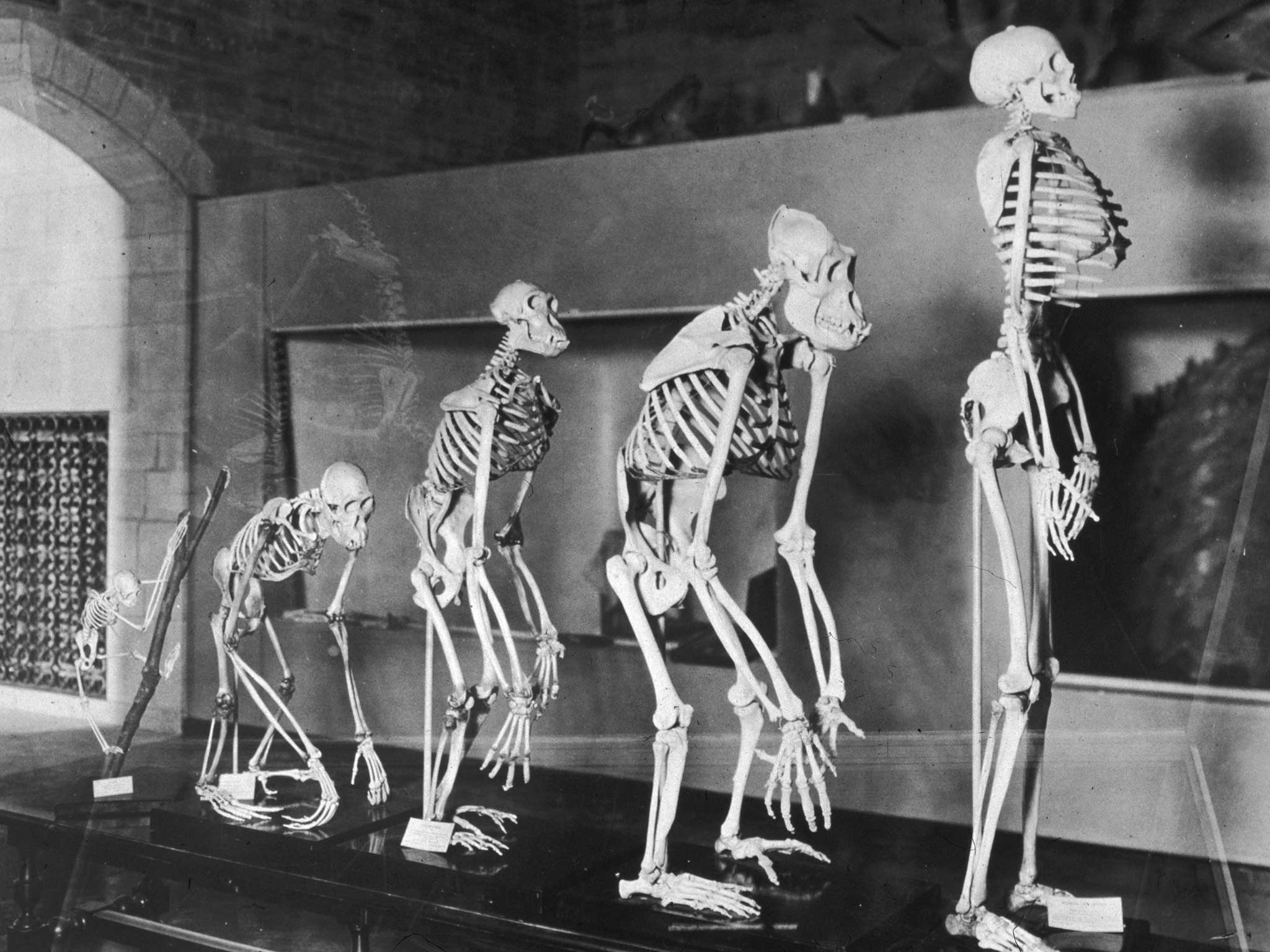Humans are still evolving despite massive recent lifestyle changes, study finds
Falling death rates and a decrease in family size in the western world have not prevented Darwinian evolution from exerting its effect on the human gene pool

Your support helps us to tell the story
From reproductive rights to climate change to Big Tech, The Independent is on the ground when the story is developing. Whether it's investigating the financials of Elon Musk's pro-Trump PAC or producing our latest documentary, 'The A Word', which shines a light on the American women fighting for reproductive rights, we know how important it is to parse out the facts from the messaging.
At such a critical moment in US history, we need reporters on the ground. Your donation allows us to keep sending journalists to speak to both sides of the story.
The Independent is trusted by Americans across the entire political spectrum. And unlike many other quality news outlets, we choose not to lock Americans out of our reporting and analysis with paywalls. We believe quality journalism should be available to everyone, paid for by those who can afford it.
Your support makes all the difference.Humans are still evolving even though modern housing and sanitation, medical science and a rich and varied diet appear to have largely insulated much of the population from the life-or-death struggle of natural selection, a study has found.
Falling death rates and a decrease in family size in the western world since the start of the industrial revolution 250 years ago have not prevented Darwinian evolution from exerting its effect on the human gene pool, scientists said.
The researchers analysed church records of births, marriages and deaths for 10,000 inhabitants of seven parishes in Finland since the beginning of the 18th Century and concluded that evolution is still occurring despite the dramatic cultural changes over the same period.
“We are still evolving. As long as some individuals have more children and other individuals have fewer children than others, there is potential for evolution to take place,” said Elisabeth Bolund of Uppsala University in Sweden.

“As long as there is variation in the population in terms of reproduction, there will be a difference in reproductive success, which means there’s something for natural selection to work on,” Dr Bolund said.
Some scientists believed that human evolution had largely stopped because agriculture, medical science and modern technology have cushioned much of the population from the “survival of the fittest” struggle at the heart of evolution by natural selection.
Within the Finnish population, for instance, while two thirds of the children born in the 1860s managed to survive to adulthood, this had risen to 94 per cent during the 1940s. At the same time, people went from having an average of 5 children to 1.6 children during their lifetime because of cultural factors such as the availability of contraception.
However, Dr Bolund and her colleagues at the universities of Sheffield and Turku in Finland found that cultural influences were not everything because there were small but significant effects caused by genetic inheritance. They found that between 4 and 18 per cent of the variations between individuals in lifespan, family size and ages of first and last childbirth were influenced by genes.
“This is exciting because if genes affected differences between individuals in these traits, it means they could also change in response to natural selection,” Dr Bolund said.

“But we know that the environment has changed rapidly and dramatically, so we investigated the genetic basis of such complex traits and their ability to continue changing through evolution,” she explained.
The study, published in the journal Evolution, showed that the genetic influence on the timing of when someone is likely to begin a family and the overall size of the family has actually risen higher in recent times compared to the 18th and 19th Centuries.
This means that modern humans could still be evolving because people are responding to Darwinian natural selection on the genetic differences between individuals within the population, the scientists said.
“It is possible that we in modern societies have more individual freedom to express our genetic predispositions because social influences are more relaxed, and this leads to the genetic differences among us explaining more of the reproductive patterns,” Dr Bolund said.
“It’s very difficult to make specific predictions about what this means for humans. We can only predict over a few generations, but we are talking about small evolutionary changes,” she said.
“It’s possible that if we see shifts to later reproduction, for example, the genetic response will lead to females finding it easier to reproduce in later life – but it will take hundreds of years,” Dr Bolund explained.
“It might be that some individuals are genetically less inclined to develop cancer or heart disease, or be more robust to these diseases, so that these individuals live longer,” she added.
Join our commenting forum
Join thought-provoking conversations, follow other Independent readers and see their replies
Comments